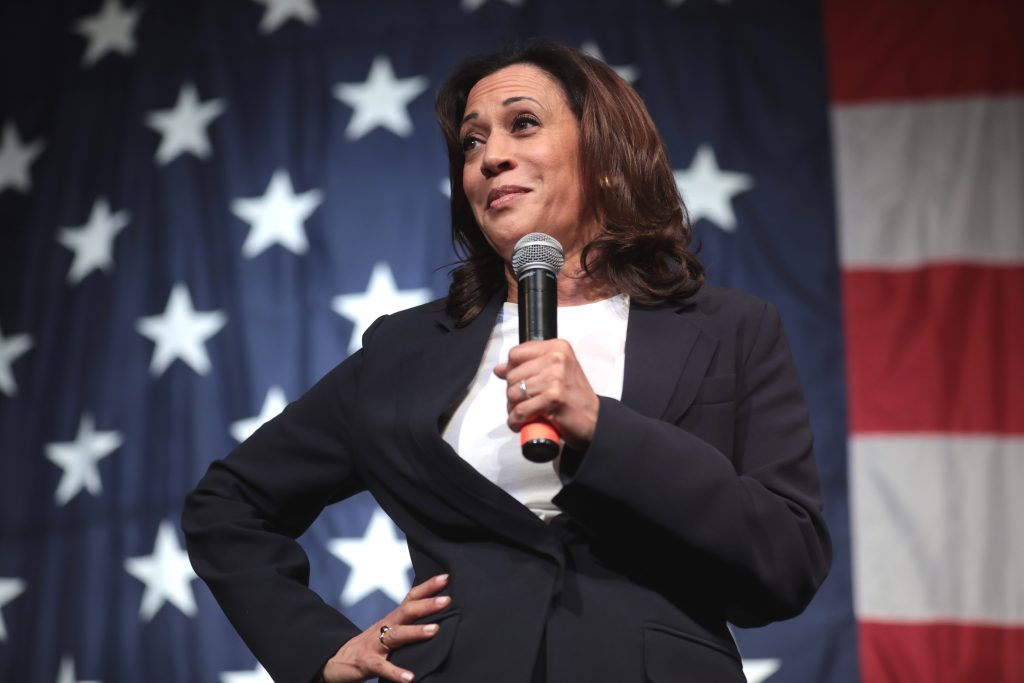
Creative Commons Kamala Harris by Gage Skidmore is licensed under
CC BY-SA 2.0.
In her latest article on the #makingairwaves blog, Voqal’s director of grantmaking and fellowship programs, Brenda Williams-Sears, highlights women leaders of color who were the first and only.
On the heels of the election of the first female vice president of the United States, Kamala Harris, I have been spending a lot of time thinking about the First and Only ones. Specifically, Black women, who were the first and only people of color in leadership positions in their organizations.
I have always thought of these women as strong, smart, and talented. I marveled at how they were able to overcome the bias that often leaves them out of positions of power. But I often stopped there, not really giving thought to the internal resistance they probably faced once they were in their roles.
The people who benefit from the current system are unlikely to see a need for change. Instead of supporting the change, even if it is for the common good, they become the informal enforcers of the status quo. Instead of being open to new ideas and ways of being, they become gatekeepers of traditions and the way it has always been done.
I’ve spoken to a few leaders who faced this challenge and they explained that the resistance can range from subtle subversion to overt sabotage. This has included questioning the hiring of the new leader, doubting their qualifications and experience, suggesting organizational weakness with them at the head, implementing new policies to secure power structures before they start, projecting feelings of anger, resentment, and entitlement toward them, and moving slowly to enact changes they want.
This Black History Month, I want to honor Black women who were the first and only. The resistance was real. The task was daunting. Yet, they persevered. They inspire me and so many others. Just by stepping into their roles as the first and only, they built powerful organizations, cultivated thriving movements, and made the path a little easier and straighter for people like me.
While the list of women who fit this description is long, here I highlight just two:
- Karundi Williams is the executive director of re:power. She is leading the organization’s bold mission of building transformative political power with and for communities of color, at all levels in our government and power structures.
- Crystal Hayling is the executive director of the Libra Foundation. She has a bold, common-sense vision for philanthropy, one that centers the people closest to injustice and aims to shift power to frontline communities.
When on the campaign trail, Vice President Kamala Harris talked about the responsibility of breaking barriers, saying “my mother would look at me and she’d say, ‘Kamala, you may be the first to do many things, but make sure you are not the last.’” The women discussed above, have made sure they are not the only ones by demonstrating that Black women can lead.
Happy Black History Month!